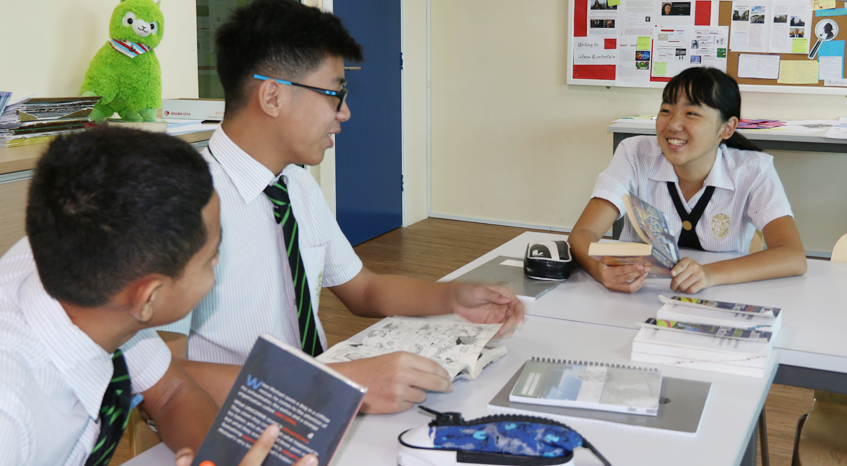Why Is Key Stage 4 The Most Critical Stage Of Secondary Education?

By Kate Carden-Brown (Head of Higher Education and Careers)
At Key Stage 4, things start to really matter. At the end of this Key Stage, also known as Years 10 and 11, students will sit their IGCSE exams, the results of which will remain with the candidate for life. These grades will be required for acceptance onto A-Level courses and will be considered by university admissions tutors as part of the selection process.
At the end of Key Stage 3 (in Year 9), pupils decide on their options – what courses they will continue at IGCSE into Year 10 and 11. The significance of the Key Stage 4 examinations, at the end of Year 11, is highlighted through these externally assessed qualifications being available to university admissions tutors as they make their offers to applicants. The elite universities will require a minimum standard of 7A* grades as a general rule (or equivalent), so the outcomes of Key Stage 4 can impact upon the options available to a pupil later on. Some selective Sixth Forms will require a minimum level of achievement at Year 11 for acceptance onto their A-Level programme. This will usually be made clear on their website.
Sixth Form study and university applications aside, Key Stage 4 is a time for pupils to explore their interests in greater depth beyond the curriculum – not only because this is fun and will bring pleasure for pleasure’s sake but because it can strengthen an application to higher education, especially to the US. During Years 10 and 11 pupils have time to develop their extra-curricular pursuits (such as sports / playing instruments), as well as super-curricular portfolio (such as wider reading beyond the curriculum / academic enrichment programmes).
During Key Stage 4 pupils can begin preparing their résumés (also known as ‘brag sheets’) where they list their skills, experiences and activities in preparation for higher education. The more that a pupil engages with the opportunities available to them, and are proactive in creating opportunities for themselves, the better their chances of being successful in their applications to more selective courses upon completion of their A-Levels.
One final point on the importance of Key Stage 4 involves the personal circumstances of the pupil at this point and the many challenges that he/she faces as an adolescent. Key Stage 4 is a time when many pupils experience significant pressure (from peers, teachers, parents, their expectations of themselves) and they are ranked or graded externally for the first time. In addition to this pupils undergo hormonal changes, experience pressure from social media and peers to conform and be accepted into social / friendship groups, and this can be especially difficult for pupils who are new to a school. It is vital that teachers and parents work together to support pupils at this time, maintaining the child’s self-esteem and well-being.
Although examination success is vital, and extra and super-curricular activities are to be encouraged, the most important element at any stage is the health of the child. We must bear in mind the pressure that Key Stage 4 can present and provide guidance and care to ensure happy children, who are able to enjoy their learning and find pleasure in their academic journey; as research shows, happy children learn best.